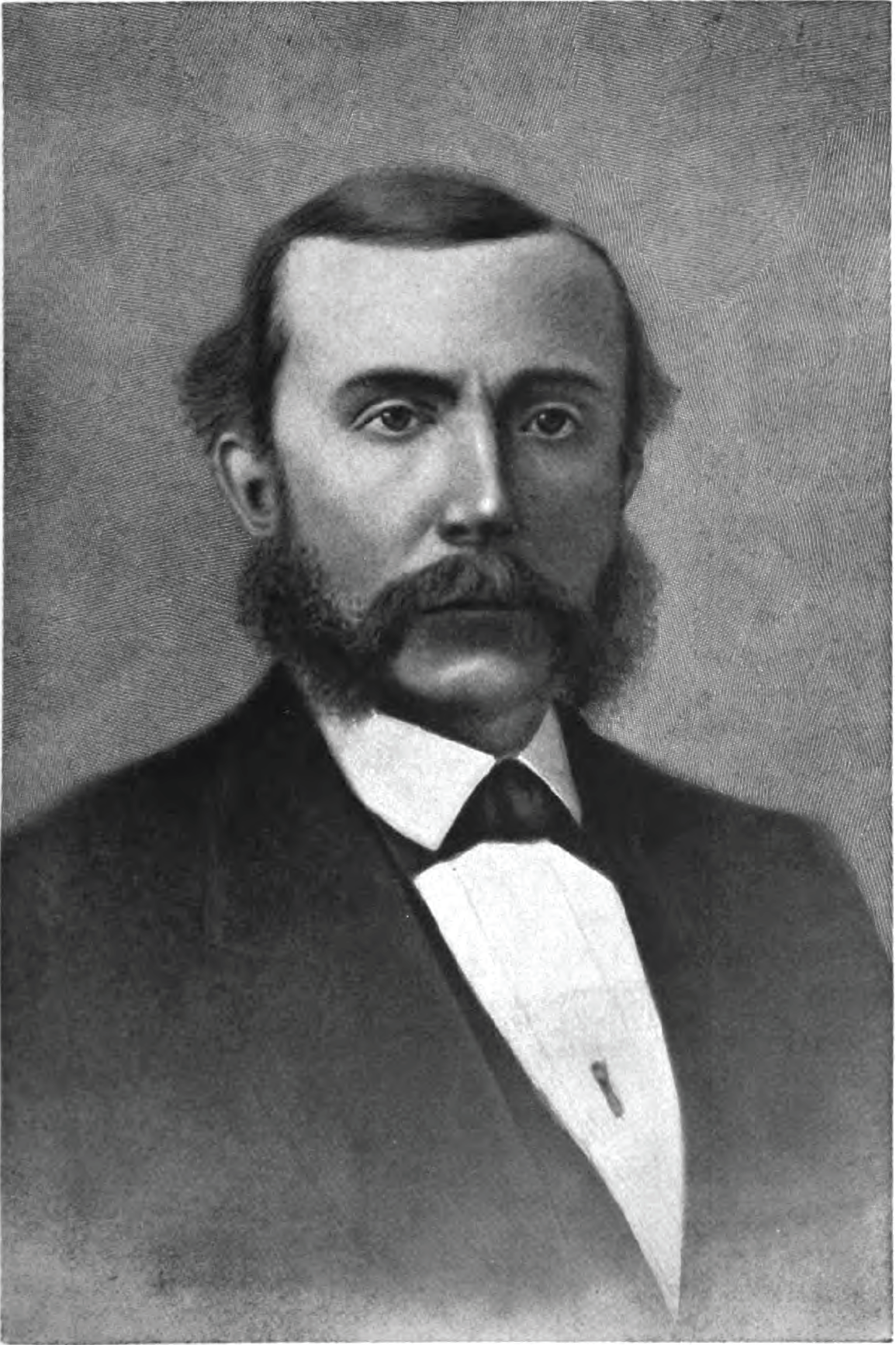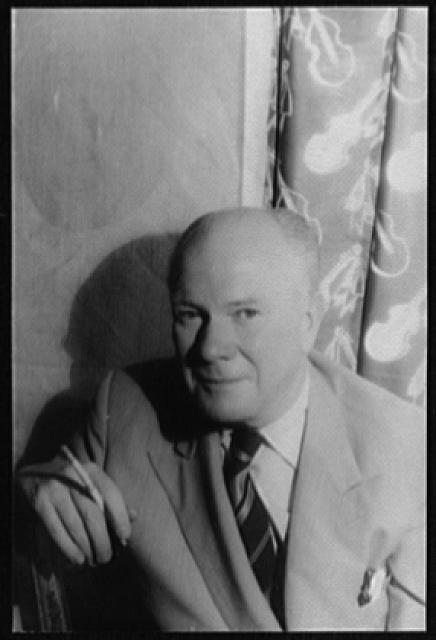|
They Hung Him On A Cross
"He Never Said a Mumblin' Word" (also known as "They Hung Him on a Cross", "Mumblin' Word", "Crucifixion", and "Easter") is an American Negro Spiritual folk song. The song narrates the crucifixion of Jesus Christ, detailing how he was nailed to the cross, "whooped up the hill", speared in the side, and hung his head and died, all the while keeping a dignified silence. Like all traditional music, the lyrics vary from version to version, but maintain the same story. Origins The songs' writers and origins are unknown. One of the earliest sources in which it is found is the 1913 collection ''Favorite Folk-Melodies as Sung by Tuskegee Students'', compiled by music educator and composer Nathaniel Clark Smith while he was based at the Tuskegee Institute. Notes accompanying ''American Ballads and Folk Songs'', an anthology of songs collected by John Lomax and Alan Lomax during the 1930s and 1940s, mention that the song as known throughout Louisiana, Texas, Mississippi, and Tennessee, an ... [...More Info...] [...Related Items...] OR: [Wikipedia] [Google] [Baidu] |
Louisiana State Penitentiary
The Louisiana State Penitentiary (known as Angola, and nicknamed the "Alcatraz of the South", "The Angola Plantation" and "The Farm"Sutton, Keith "Catfish".Out There: Angola angling. ''ESPN Outdoors''. May 31, 2006. Retrieved on August 25, 2010.) is a maximum-security prison farm in Louisiana operated by the Louisiana Department of Public Safety & Corrections. It is named "Angola" after the former slave plantation that occupied this territory. The plantation was named after the country of Angola from which many slaves originated before arriving in Louisiana. Angola is the largest maximum-security prison in the United States with 6,300 prisoners and 1,800 staff, including corrections officers, janitors, maintenance, and wardens. Due to these large numbers, it has been given the nickname "a gated community". Located in West Feliciana Parish, the prison is set between oxbow lakes on the east side of a bend of the Mississippi River, thus flanked on three sides by water. It lies ... [...More Info...] [...Related Items...] OR: [Wikipedia] [Google] [Baidu] |
Columbia Masterworks
Columbia Masterworks was a record label started in 1924 by Columbia Records. In 1980, it was separated from the Columbia label and renamed CBS Masterworks. In 1990, it was revived as Sony Classical after its sale to the Sony Corporation. History When Columbia Records undertook the project of releasing great classical music for domestic sale in America, the label was still a year away from an "electrical" recording process. In November 1924, the first eight releases had been recorded acoustically. These first eight sets included five symphonic recordings—Beethoven's Seventh and Eighth Symphonies, Dvorak's " From the New World", Mozart's E-Flat Major (No. 39), and Tchaikovsky's " Pathetique". Three recordings by quartets were also part of that initial offering. More releases followed in March 1925, and a staggering 18 sets were added that fall. The prices of these sets varied with the number of included discs, from $4.50 to $10.50. Under the leadership of Columbia's presiden ... [...More Info...] [...Related Items...] OR: [Wikipedia] [Google] [Baidu] |
Standard Oil Company
Standard Oil Company, Inc., was an American oil production, transportation, refining, and marketing company that operated from 1870 to 1911. At its height, Standard Oil was the largest petroleum company in the world, and its success made its co-founder and chairman, John D. Rockefeller, who is among the wealthiest Americans of all time and among the richest people in modern history. Its history as one of the world's first and largest multinational corporations ended in 1911, when the U.S. Supreme Court ruled that it was an illegal monopoly. The company was founded in 1863 by Rockefeller and Henry Flagler, and was incorporated in 1870. Standard Oil dominated the oil products market initially through horizontal integration in the refining sector, then, in later years vertical integration; the company was an innovator in the development of the business trust. The Standard Oil trust streamlined production and logistics, lowered costs, and undercut competitors. "Trust-busting" cri ... [...More Info...] [...Related Items...] OR: [Wikipedia] [Google] [Baidu] |
Deep South
The Deep South or the Lower South is a cultural and geographic subregion in the Southern United States. The term was first used to describe the states most dependent on plantations and slavery prior to the American Civil War. Following the war, the region suffered economic hardship and was a major site of racial tension during and after the Reconstruction era. Before 1945, the Deep South was often referred to as the "Cotton States" since cotton was the primary cash crop for economic production. The civil rights movement in the 1950s and 1960s helped usher in a new era, sometimes referred to as the New South. Usage The term "Deep South" is defined in a variety of ways: *Most definitions include the following states: Louisiana, Mississippi, Alabama, Georgia, and South Carolina. *Texas, and Florida are sometimes included,Neal R. Pierce, ''The Deep South States of America: People, Politics, and Power in the Seven States of the Deep South'' (1974), pp 123–61 due to being peri ... [...More Info...] [...Related Items...] OR: [Wikipedia] [Google] [Baidu] |
Lead Belly
Huddie William Ledbetter (; January 20, 1888 – December 6, 1949), better known by the stage name Lead Belly, was an American folk music, folk and blues singer notable for his strong vocals, Virtuoso, virtuosity on the twelve-string guitar, and the folk standards he introduced, including his renditions of "In the Pines", "Goodnight, Irene", "Midnight Special (song), Midnight Special", "Cotton Fields", and "Boll Weevil (song), Boll Weevil". Lead Belly usually played a twelve-string guitar, but he also played the piano, mandolin, harmonica, violin, and diatonic accordion, windjammer. In some of his recordings, he sang while clapping his hands or stomping his foot. Lead Belly's songs covered a wide range of genres, including gospel music, blues, and folk music, as well as a number of topics, including women, liquor, prison life, racism, cowboys, work, sailors, cattle herding, and dancing. He also wrote songs about people in the news, such as Franklin D. Roosevelt, Adolf Hitl ... [...More Info...] [...Related Items...] OR: [Wikipedia] [Google] [Baidu] |
Vincent Sheean
James Vincent Sheean (December 5, 1899, Pana, Illinois – March 16, 1975, Arolo, Frz. of Leggiuno, Italy) was an American journalist and novelist. Career Sheean's most famous work was ''Personal History'' (New York: Doubleday, 1935). It won one of the inaugural National Book Awards: the Most Distinguished Biography of 1935."Books and Authors", ''The New York Times'', 1936-04-12, page BR12. ProQuest Historical Newspapers The New York Times (1851-2007). "Lewis is Scornful of Radio Culture: ...", ''The New York Times'', 1936-05-12, page 25. ProQuest Historical Newspapers The New York Times (1851-2007). Biography was separately recognized in 1935 and 1936, then subsumed in general Nonfiction. Film producer Walter Wanger acquired the political memoir and made it the basis for his 1940 film production ''Foreign Correspondent'', directed by Alfred Hitchcock. Sheean served as a reporter for the ''New York Herald Tribune'' during the Spanish Civil War. Sheean wrote the narration f ... [...More Info...] [...Related Items...] OR: [Wikipedia] [Google] [Baidu] |
Arturo Toscanini
Arturo Toscanini (; ; March 25, 1867January 16, 1957) was an Italian conductor. He was one of the most acclaimed and influential musicians of the late 19th and early 20th century, renowned for his intensity, his perfectionism, his ear for orchestral detail and sonority, and his eidetic memory. He was at various times the music director of La Scala in Milan and the New York Philharmonic. Later in his career he was appointed the first music director of the NBC Symphony Orchestra (1937–54), and this led to his becoming a household name (especially in the United States) through his radio and television broadcasts and many recordings of the operatic and symphonic repertoire. Biography Early years Toscanini was born in Parma, Emilia-Romagna, and won a scholarship to the local music conservatory, where he studied the cello. Living conditions at the conservatory were harsh and strict. For example, the menu at the conservatory consisted almost entirely of fish; in his later years, ... [...More Info...] [...Related Items...] OR: [Wikipedia] [Google] [Baidu] |
Salzburg
Salzburg (, ; literally "Salt-Castle"; bar, Soizbuag, label=Bavarian language, Austro-Bavarian) is the List of cities and towns in Austria, fourth-largest city in Austria. In 2020, it had a population of 156,872. The town is on the site of the Roman settlement of ''Iuvavum''. Salzburg was founded as an episcopal see in 696 and became a Prince-Archbishopric of Salzburg, seat of the archbishop in 798. Its main sources of income were salt extraction, trade, and gold mining. The fortress of Hohensalzburg Fortress, Hohensalzburg, one of the largest medieval fortresses in Europe, dates from the 11th century. In the 17th century, Salzburg became a center of the Counter-Reformation, with monasteries and numerous Baroque churches built. Historic Centre of the City of Salzburg, Salzburg's historic center (German language, German: ''Altstadt'') is renowned for its Baroque architecture and is one of the best-preserved city centers north of the Alps. The historic center was enlisted as a UN ... [...More Info...] [...Related Items...] OR: [Wikipedia] [Google] [Baidu] |
Franz Rupp
Franz Rupp (February 24, 1901 – May 27, 1992) was a German-American pianist and accompanist. Life Rupp was born in the town of Schongau, Bavaria, the son of Ludwig and Lina Rupp, ''née'' Gartner. In 1912 his father was transferred to the revenue office in Munich. Rupp studied at the Akademie der Tonkunst in Munich from 1916 – 1922. Among his teachers were August Schmid-Lindner, Friedrich Klose und Walter Courvoisier. In 1920 he undertook his first American tour with the violinist Willy Burmester. From 1926 he lived in Berlin and established his reputation as an accompanist. He married Warsaw-born opera singer Stephanie Schwarz in 1930. From 1927 to 1934 he was the constant accompanist of the famous German baritone Heinrich Schlusnus, but he fell out with him when the singer made a career under the National Socialists. As Rupp's wife was Jewish he was no longer allowed to perform in public. But he accompanied the outstanding Austrian violinist and composer Fritz Kreis ... [...More Info...] [...Related Items...] OR: [Wikipedia] [Google] [Baidu] |
Lotos Club
The Lotos Club was founded in 1870 as a gentlemen's club in New York City; it has since also admitted women as members. Its founders were primarily a young group of writers and critics. Mark Twain, an early member, called it the "Ace of Clubs"."The Lotos Club," official website. Accessed May 11, 2011. The Club took its name from the poem "The Lotos-Eaters" by Alfred, Lord Tennyson, which was then very popular. Lotos was thought to convey an idea of rest and harmony. Two lines from the poem were selected for the Club motto: The Lotos Club has always had a literary and artistic bent, with the result that it has accumulated a noted collection of American paintings. Its "State Dinners" (189 ... [...More Info...] [...Related Items...] OR: [Wikipedia] [Google] [Baidu] |
Marian Anderson
Marian Anderson (February 27, 1897April 8, 1993) was an American contralto. She performed a wide range of music, from opera to Spiritual (music), spirituals. Anderson performed with renowned orchestras in major concert and recital venues throughout the United States and Europe between 1925 and 1965. Anderson was an important figure in the struggle for African-American artists to overcome racial prejudice in the United States during the mid-twentieth century. In 1939 during the era of racial segregation in the United States, racial segregation, the Daughters of the American Revolution (DAR) refused to allow Anderson to sing to an integrated audience in DAR Constitution Hall, Constitution Hall in Washington, D.C. The incident placed Anderson in the spotlight of the international community on a level unusual for a classical musician. With the aid of First Lady Eleanor Roosevelt and her husband President Franklin D. Roosevelt, Anderson performed a critically acclaimed open-air conc ... [...More Info...] [...Related Items...] OR: [Wikipedia] [Google] [Baidu] |
Okeh
Okeh Records () is an American record label founded by the Otto Heinemann Phonograph Corporation, a phonograph supplier established in 1916, which branched out into phonograph records in 1918. The name was spelled "OkeH" from the initials of Otto K. E. Heinemann but later changed to "OKeh". Since 1926, Okeh has been a subsidiary of Columbia Records, a subsidiary of Sony Music. Okeh is a jazz imprint, distributed by Sony Masterworks, a specialty label of Columbia. Early history Okeh was founded by Otto (Jehuda) Karl Erich Heinemann (Lüneburg, Germany, 20 December 1876 - New York, USA, 13 September 1965) a German-American manager for the U.S. branch of Odeon Records, which was owned by Carl Lindstrom. In 1916, Heinemann incorporated the Otto Heinemann Phonograph Corporation, set up a recording studio and pressing plant in New York City, and started the label in 1918. The first discs were vertical cut, but later the more common lateral-cut method was used. The label's parent ... [...More Info...] [...Related Items...] OR: [Wikipedia] [Google] [Baidu] |



.jpg)




